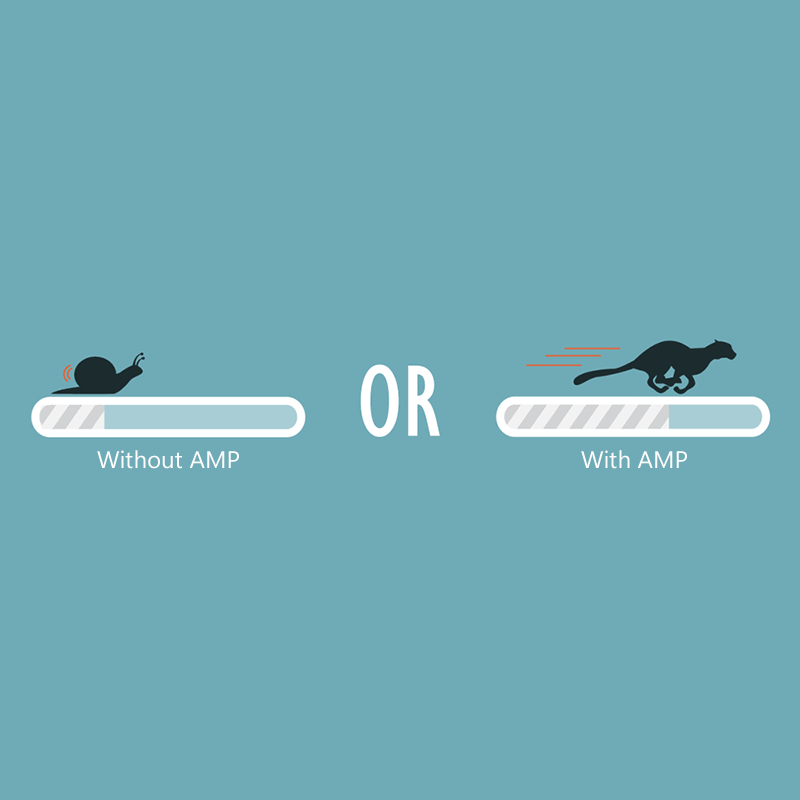
Google the tech company is no stranger to lawsuits, accusations and allegations. They won't end as long as Google remains up there.
And this time, it is said that Google throttled the speed of non-AMP pages. According to antitrust complaint claims, Google's AMP that is meant to be a product to "dramatically improve" mobile web performance, was actually a scheme to entice publishers into using the format, in order to limit advertising dollars spent on competing ad exchanges.
AMP stands for Accelerated Mobile Pages.
It's an open-source HTML framework developed by AMP Open Source Project, overseen by Google.
As a competitor of Facebook Instant Articles and Apple News, Google markets AMP as a method to optimize mobile web browsing, and intended to make web pages to load faster.
To do this, AMP uses caching by CDN, which allows AMP-powered pages to be served more quickly.
AMP that was first announced back in 2015, has advantages.
However, the format also gave lots of publishers headaches.
Due to the format and its structures, publishers who wish to AMP had to revised and reconstruct their web pages, in order for AMP to work properly.
Many publishers and agencies use AMP. But many also refrained from using it.
Moreover, AMP has also been criticized for potentially giving further control over the web to Google and other concerns.
And in this lawsuit, the complaint that is led by the State of Texas on behalf of 16 mostly Republican states, went as far as accusing Google of throttling the load speed of pages not using AMP in order to give a “nice comparative boost” to AMP.
“To respond to the threat of header bidding, Google created Accelerated Mobile Pages ('AMP'), a framework for developing mobile web pages, and made AMP essentially incompatible with JavaScript and header bidding. Google then used its power in the search market to effectively force publishers into using AMP,” the complaint alleged.
“Throttling non-AMP ads slows down header bidding, which Google then uses to denigrate header bidding for being too slow.”
“‘Header Bidding can often increase latency of web pages and create security flaws when executed incorrectly,’ Google falsely claimed. Internally, Google employees grappled with ‘how to [publicly] justify [Google] making something slower,'” according to the complaint.
The lawsuit, cited some internal Google documents for proof.
However, the lawsuit that was originally filed on September 9th was heavily redacted.
It was only on October 2021, that a ruling by a Manhattan judge forced the release of the mostly unredacted version.
In its defense, Google spokeswoman Allie Bodack called the lawsuit “riddled with inaccuracies.”
“In reality, our advertising technologies help websites and apps fund their content, and enable small businesses to reach customers around the world. There is vigorous competition in online advertising, which has reduced ad tech fees, and expanded options for publishers and advertisers,” she said. “We will strongly defend ourselves from [Texas Attorney General Ken Paxton’s] baseless claims in court.”
Google also denied the allegation of tweaking AMP to respond to the threat of header bidding.
"Engineers at Google designed AMP in partnership with publishers and other tech companies to help webpages load faster and improve the user experience on mobile devices—not to harm header bidding,” said Google in a post, back in January.
These AMP allegations mark how powerful Google is on the internet.
Publishers and news agencies who wish to earn traffic from Google, have to follow Google's recommendations on both advertising and SEO. And that include using AMP.
They need to do that, even when behind the scene, Google only cares about itself.